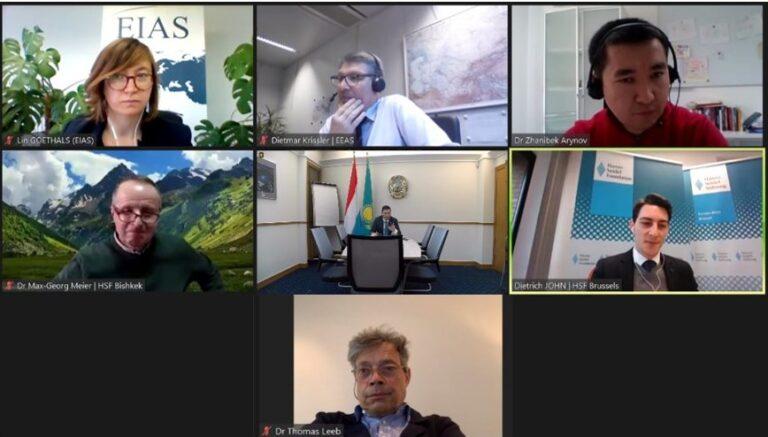In this seminar, the new prospects for the development of relations between Kazakhstan and the European Union (EU) were discussed. In addition the dynamics that changed the political landscape of the Central Asian giant in 2022 were assessed, from the January uprisings, through the constitutional reform in June and Tokayev’s re-election to the presidency in November 2022.
This year, Kazakhstan and the EU will celebrate the 30th anniversary of their diplomatic relations. Kazakhstan is the first Central Asian partner to have concluded an Enhanced Partnership and Cooperation Agreement (EPCA) with the EU in 2020, which now governs their trade and economic relations. The EU is Kazakhstan’s largest trade partner and investor, accounting for 40% of the country’s external trade. As trade relations develop progressively, political and social reforms in Kazakhstan have opened the door to enhanced cooperation between the European Union and the Central Asian country. The EU has welcomed Kazakh President Kassym-Jomart Tokayev’s agenda to further advance his reforms towards an inclusive, democratic, and fair Kazakhstan, and is committed to deepening and broadening relations with the Asian country. Since October 2022, multiple high-ranking EU representatives have visited Central Asia, including Astana. Solid foundations for bilateral cooperation have been built, and as the world navigates the stormy waters of current geopolitical and economic difficulties, Kazakhstan and the EU plan closer economic and political cooperation within the EU Global Gateway strategy.

